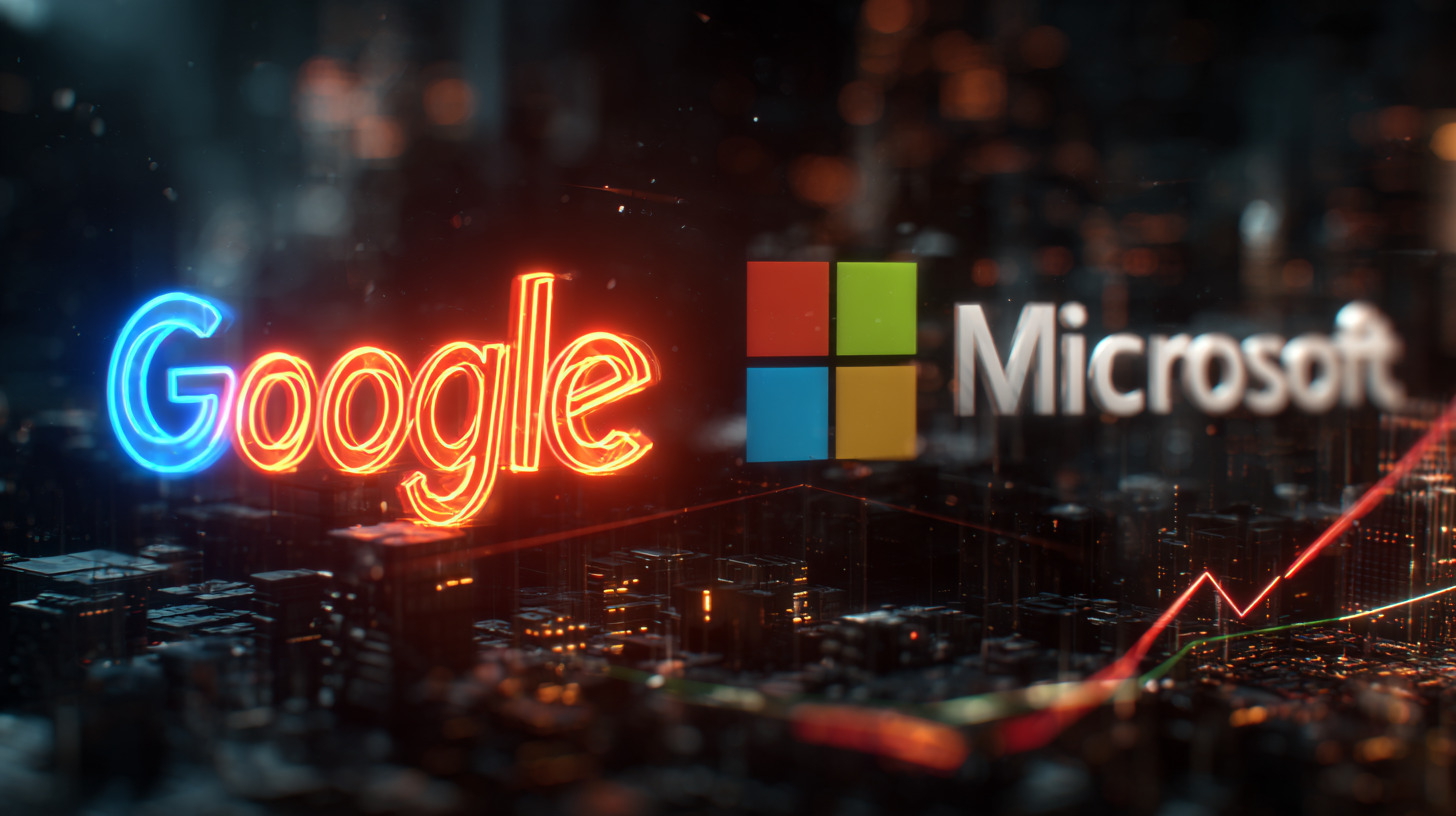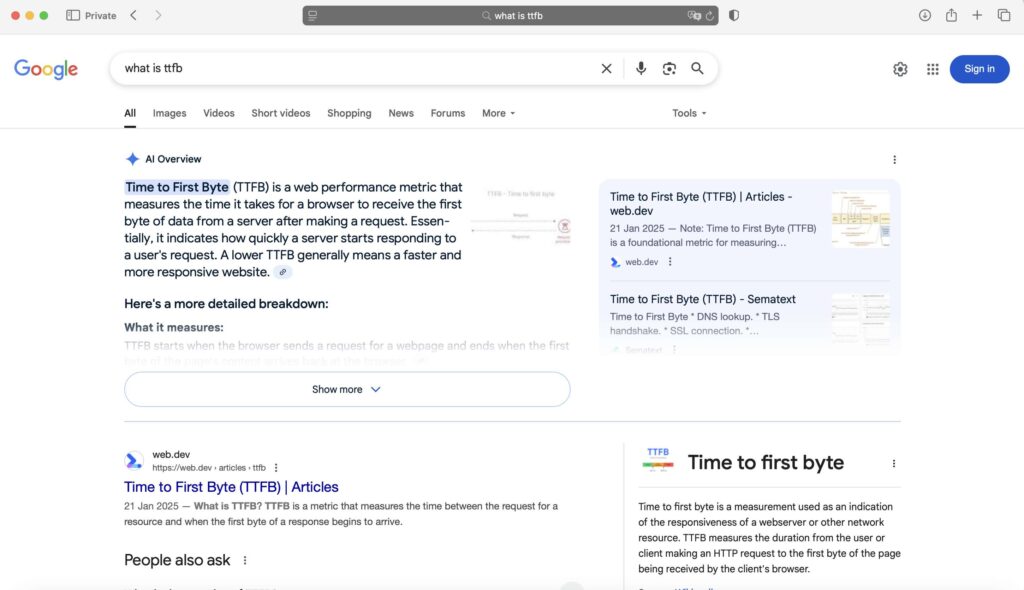Is SEO Dead? How Microsoft & OpenAI Missed a Multi-Billion Dollar ARR Opportunity

SEO isn’t dead — it’s evolving into something radically different. Generative AI tools, like OpenAI’s models, now act like search engines themselves. But unlike traditional search engines, they don’t link out or cite original sources. They scrape public and even copyrighted material, summarise it, and deliver a final answer—removing the user’s need to click through to a website.
What’s more, they rank and curate this information using internal logic, effectively replacing the algorithmic role that Google once held. But there are no established rules, no citations, and no traffic being sent back to the creators.
Until regulations or incentives catch up, the SEO game is being played without a scoreboard. And for many creators, that’s a dangerous shift.
Lets look at Market Share of Search Engines
Google has the largest search engine by user usage globally. Let’s look at the market share of search engines in the USA and the EU.
Search Engine Market Shares 2020 – May – by Statcounter
| Region | Bing | Other | |
|---|---|---|---|
| US | ~90.8% | ~6.95% | ~2.7% |
| EU | ~90.4% | ~4.1% | ~5.5% |
Search Engine Market Shares 2025 – by Statcounter
| Region | Bing | Others | |
|---|---|---|---|
| U.S. | ~88 % | ~7.5 % | ~4.5 % |
| EU | ~89.5% | ~4.15 % | ~6.3 % |
And who is the biggest challenger to Google? Microsoft Bing. And what do they have in their pocket? GPT — a new, disruptive technology that early adopters are already using daily. Let’s take a look at the timeline of GPT releases:
OpenAI GPT Release Timeline
| Version | Release Date | Key Info |
|---|---|---|
| GPT-1 | June 2018 | First model (117M parameters); proof of concept for pretraining + fine-tuning. |
| GPT-2 | February 2019 (research paper)November 2019 (full model) | Initially withheld due to “misuse potential”; later fully released. 1.5B parameters. |
| GPT-3 | June 2020 | 175B parameters; massive leap in capability. |
| GPT-3.5 | March 2022 (API)November 2022 (ChatGPT) | Used in the first release of ChatGPT. |
| GPT-4 | March 14, 2023 | Multimodal capabilities (text + images), more reliable and nuanced. |
The first powerful version similar to what we use today was GPT-3, which became available in June 2020. At that time, Google was still focused on traditional search engine-ing.
What if GPT had been released as a new kind of search engine, integrated with Bing? One that could answer informational queries, provide citations to original authors or websites, and even include multiple points of view from different sources?
Instead of simply listing websites like traditional search engines do, it could extract relevant insights or perspectives from those sites—while still linking to the original pages for users to explore further.
An Excellent Example of “Vision” in Marketing Strategy
You’re Microsoft. You have Bing. You have billions in budget. You have access to GPT — and you missed this opportunity? Unbelievable. Google’s annual ad revenue is around $50 billion.
And Google already recognized what was coming—and they must’ve been praying that the scenario above never happened. They threw everything they had at building similar technology to compete with OpenAI and others. Let’s check Google Search today:

Lets think how ordinary Google user will react? They will keep using Google and they will like integrated AI features instead of creating a new account on GPT that once OpenAI forced users to be able to use their tools, later removed forcing and generated chatgpt.com website. People prefer existing tools if they have similar features, so early adapters may continue on GPT usage but Google may offer better user experience as they heavily invested on user experience for a long time.
OpenAI Announced They Will Build a Search Engine
When OpenAI release their search engine everybody will switch from Google to their search engine? Let’s hope your dreams come true young boys. You already created a superior search engine 5 years ago but you did not figure it out and now you don’t have competitive advantage once upon a time you had.
Congrats, Microsoft and OpenAI — you let a giant fish slip through your fingers!
What they did instead?
“SEO is dead.”
“Google is dying.”
“Long live AI.”
“We’re not just good — we’re the best.”
“We have disruptive, next-generation technology.”
“No one else can do what we do — not the Chinese…”
Am I against AI or OpenAI?
No, actually I use it daily. And I also used GPT improve my writing of this post. And we are also developing in house AI agent for our startup. Let mention Claude too. We haven’t bought paid version of Claude, while we are thinking to buy, Google announcement Gemini 2.5 Pro model which is good at coding, technical tasks. Now junior dev on my startup is using Google Gemini 2.5 Pro model for free daily.
Am I a Google fan?
No. In fact, Google seemed to lose its mind while developing AI — they even forgot how effectively they used to deal with spammers on their search engine years ago. I actually wrote a blog post about how they failed to keep up with spam and manipulation: https://selimkoc.com/fraud-spammers-hacked-googles-algorithm/
Is SEO dead?
I actually wrote this blog in response to a specific situation. Below is a message I sent to a marketing professional at Microsoft, replying to his LinkedIn post claiming that SEO is dead. I didn’t write it as a public comment because I didn’t want to challenge him directly, or start an argument.
——-
Unfortunately, the examples used for SEO no longer reflect today’s reality. You can’t rank by keyword stuffing or publishing thin content anymore. Instead, Google expects every content creator to produce long-form articles—often 2000+ words—to demonstrate expertise, earn citations, and acquire backlinks in order to rank higher.
Schema markup has also become a de facto standard across all major search engines, making structured content essential. The barrier to entry for SEO is already high, and it’s becoming more competitive by the day.
Google now expects professionals—like plumbers or doctors—to write comprehensive articles regularly. But are these people realistically able to generate new, in-depth content on a continuous basis?
User search intent hasn’t fundamentally changed—most searches are still informational. However, search engines are increasingly answering these queries with AI-generated content. This raises a critical issue: if the authors behind original content (currently imitated by AI) are not rewarded, new high-quality content may stop appearing.
Some people used to write blogs as a source of income—much like today’s influencers. But if you cut off that income, will they continue dedicating the same time and effort to content creation?
SEO isn’t dead—it’s evolving. In fact, SEO practitioners have long been pioneers of structured, high-quality content. Those contents are also used by AI now mostly without giving citiations to the authors, that’s the biggest problem.
Lets think I’m writing a blog about a solution in detail, and AI is copying it without giving any detail about the author and getting all the authority themselves. But search engines are already trying to redirect the user to the source website who is the author. I think people will figure out this and law will enforce AI models to out links or original authors in content.
GPT and Microsoft lost a big opportunity by not releasing a search engine even in early days which could do what Google does now, adding ai answer and below of it the website results. And they could do much better by proving websites with their summary or different ideas as a result. Microsoft already had Bing and GPT, and missed very big opportunity to kick Google.
———–